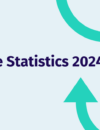
Accessibility is a term banded about in lots of different arenas; be that when it comes to physical spaces, digital services, or management styles. With one in five people in the UK having a disability, it’s a legal requirement to make reasonable adjustments as an employer, to avoid people with disabilities being put at a disadvantage. A lift that is always broken and one disabled toilet that is forever out-of-order simply won’t cut it anymore. So why do some employers still find it so difficult to implement effective accessibility strategies? Below are our top tips for making your organisation accessible to all.
1. Get the basics right.
There are certain things that you absolutely cannot compromise on, in order to a. comply with the law and b. reap the benefits of being a truly accessible business. Read the advice on the Gov.uk website to check what you’re doing complies with the 2010 Equality Act. This will help you with assistive technologies as well as discrimination law and improving your physical and digital spaces.
2. Test your digital content.
It’s crucial to undertake regular UX testing, remembering to be diverse in your selection of candidates and environments for that testing. This is about making websites work for people with learning difficulties, visual impairments or motor difficulties for example, but also about making sure your content works whatever the environment someone may be consuming it in, such as with poor internet signal, in sunlight or with a smaller screen than usual. This Mashable article lists a number of tools you can use to test the usability of your site.
3. Don’t pay lip service; live and breathe your values.
Create guidelines around implementing and maintaining accessibility in your workplace, not only to support people in how they can make it happen, but also to help them understand why it’s important from a moral standpoint as well as a legal one. It’s about more than complying with the rules, but about challenging behaviour that doesn’t fit with your values.
4. Remember, accessibility is for everyone.
It’s important to think about the other meanings associated with the word accessibility. Ensuring your staff can work flexibly goes without saying now, but you could also try some other schemes to improve accessibility, wellbeing and productivity, like mindfulness or yoga at lunchtimes. This year, Perpetual Guardian, a New Zealand-based company, trialled a four-day working week over a two month period, while paying employees their usual full-time wage. They found that not only were stress levels lowered and work life balance significantly improved, but job performance was maintained and team engagement levels increased.
Find out more about our mission to give companies the power to choose the best person for the job, from a diverse pool of candidates.





